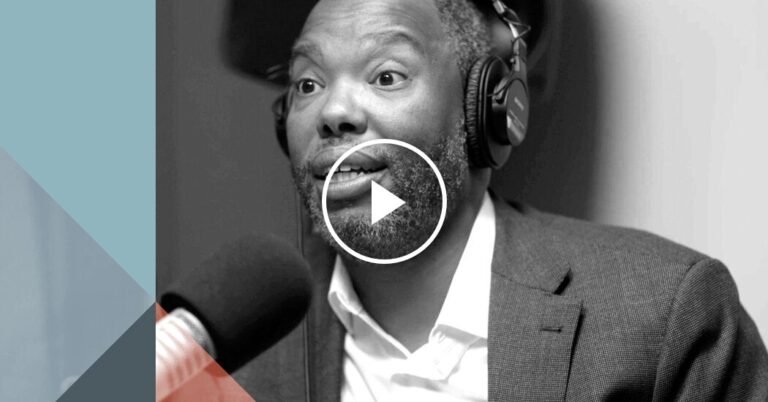Thinking about the moment we’re in, when I hear or see people who are honored and commemorated in such a way so that they almost become a national religious figure, and then I see their content, and I see that their content is actively destructive to humanity, I have to draw a line there. Like, I just, I think, for me, the bigger question is where are the lines? You know what I mean? And I think there’s no problem with saying: Listen, you can’t hurl epithets at people. You’re out if you do that. I’m sorry. Look, you want to have a debate about whether we should have affirmative action in colleges? I’m here for it. You want to have a debate —— What does it mean to be on the other side of the line? I’m sorry, what do you mean? What is it? So once somebody is on the other side of the line, what does that mean for you? For instance, once you think it’s OK? No, no, no, no, no, no. I’m trying to make this concrete. No, I am, too. Yes, once, for whatever. Whatever the definition of the line is. What does it mean for you, for somebody to be on the other side of it? Not somebody who just died. But somebody still living. If you think it is OK to dehumanize people, then conversation between you and I is probably not possible. And so what do you do with the fact that so many people think that is OK? I don’t necessarily have the crystal ball to say that in this time, I’m going to be able to convince a majority of people that, for instance, let’s just take the thing that’s hot right now. Trans folks are human beings and deserve humanity. Although I think most people know that you shouldn’t say what he said. Like, that [EXPLETIVE] is rude. It’s just rude to talk to people like that. And I think most people know that. So as I’m thinking my way through the question, I actually think that’s not a hard line to draw. I think not calling people out of their name. I think that’s actually a basic value that most people have. And I think people who think it’s not, who are pushing that actually themselves on the other side of the line, I want to hold on this for a minute, because I do think this is a very core question —— And that’s different from policy, Ezra. Yeah, I understand it’s different than policy. That’s different than policy. I think that one reality is the president of the United States is a person who, in his comportment as a human being on the public stage, I would have said, in ’08, in ’12, in ’16, should be on the other side of the line. Yeah, I think he’s a person who does not act with any sense of public or even personal decency. And then he won in ’16, lost narrowly in ’20 and then won in 2024. And I think the thing that that has led to for me is recognizing that I don’t get to draw the line.

